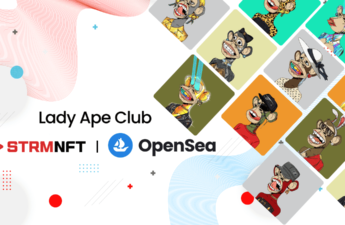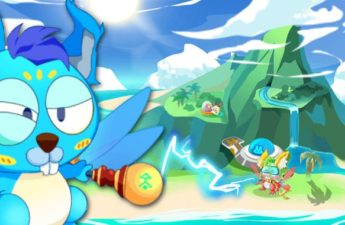All good comes with bad, and the rise of web3 has brought a tsunami of both. In many ways, the last two years of web3 have been incredible. We’ve had amazing stories of rags to riches come ups, people pulling themselves and their families out of crippling debt, and others making a significant impact in their communities. Most importantly, we’ve seen a pivotal power shift between individuals and centralized corporations, placing more wealth and freedom into the hands of talented creators than ever before.
But there’s also a dark side that we’d be remiss to neglect. The NFT industry is facing a mental health crisis.
Whether you’re a seasoned trader, project founder, artist, or a novice learning the ropes, you’ve likely felt waves of stress at some point in your web3 experience. If you can relate, don’t worry. You’re not alone.
In an industry fueled by FOMO, FUD, luck, and deep emotions, web3 can be taxing. Life-changing sums of wealth can be made, lost, or stolen overnight. In any other environment, this would be front-page news. In web3 it’s the norm. This abundance of opportunity draws in new entrants at a rapid pace, many with good intentions. Simultaneously, many will fall victim to their emotions, making FOMO-induced rash decisions, and investing money they cannot afford to lose.
“My journey had been mostly in a vertical line, being super lucky and climbing up quickly. I started making a good amount of money and spend most of my time searching for bigger home runs. Right at my pinnacle is when I felt the most stress and emotion about missing out on gains, instead of focusing on preserving wealth. The more money I made, the more stress I had,” said Jay Kingston, an experienced NFT trader to nft now.
There’s a running joke within the industry that days in web3 are like months in the web2 world. As exaggerated as it seems, it’s also true. No matter how hard you try, it’s impossible to keep up with all of the information. Anyone who’s started from nothing in web3 will tell you first-hand stories of their beginner mistakes, feeling overwhelmed by information, and painful UX learning curves. Without setting proper boundaries, the desire to learn and open up doors can lead to exhaustion, overextension, and burnout.
Writer and NFT investor, Tom White experienced this first hand: “In many ways, I feel as though NFTs exploit the very best and very worst of our cognitive biases and hardwiring. Because of the cultural trend towards ‘flexing,’ people tend to share big wins and hide big losses. All this public winning leads to a vicious cycle accelerated by FOMO. Poor decision-making leads to losses, losses lead to exasperation, exasperation leads to fatigue, fatigue to observation, observation to FOMO, and so it goes. It’s been really tiring.”
For this article, we’ve spoken to founders, artists, and investors within the NFT community to hear their own mental health experiences and pass their learnings along to you.
Between selling and scaling their vision, soliciting new brand deals and partnerships, building a team, and interacting with the community, the work of an NFT founder never stops. Regardless of the project size, one thing is certain for founders: the pressure is always on and without proper load management, burnout is inevitable.
Stacey Yael – Founder of Visible Women NFT
Visible Women
Stacey Yael, the founder of Visible Women NFT, has spent less than a year in the space, but immediately noticed a shift in her day-to-day life.
“There is a big adjustment phase entering the NFT space because it is a global community and it’s a bit like Vegas- as it’s going 24/7. While the upside and opportunity for engagement are amazing, it can be hard to find a balance between building in the virtual world and living IRL.
When I first entered the space in December, I was shocked to hear how many members of the NFT community (especially women) were focused on mental health and balance. Day by day, I realized how hard it was for me personally to find balance. The abundance of opportunities to connect with others was taking a toll on my personal life. I’ve heard early adopters can often burn out before fully realizing their potential, and that would be a shame for all of us working so hard as founders and creators.”
Wil Lee – Founder of The Littles
For others like Wil Lee, founder of The Littles, the workload is manageable but the outside noise from the community makes an impact.
“Community is a double-edged sword. There’s never been a situation where the community doubles as your investors and has such close access to you as a founder. This allows you to get real-life feedback around what works and doesn’t. If you do something great, you are the hero. If you build something that needs improving, you’ll only hear the negative side. As you’re trying to build the ship, sometimes being able to deal with these unrealistic demands is very difficult. The space never sleeps and our team is global. At any hour of the day, you are consumed with feedback, meetings, and endless work. That itself blurs the line between your personal and professional life. This lack of boundaries led to my own experience with burnout.”
“My number one piece of advice for aspiring founders is to be completely transparent with the community upfront and set proper boundaries. Tell them clearly what you’re building and how you’re building it. That way, the people have the choice to go on the journey with you. Otherwise, you will overhype the project, sell out, and then have to live up to other people’s expectations.”
Alejandro Navia – Co-founder of nft now
“Burning out at one of my last startups helped me recognize my lack of prioritization of mental health. I became an executive coach during COVID to help others make better decisions about freedom and fulfillment in their lives. When I came into the NFT industry, there was so much connection and symbiosis. But because of the pandemic, most of this was over the internet. It wasn’t until I met everyone in person for the first time at Bitcoin Miami that I started to see the warning signs of overextension and overworking. At nft now, our team treats mental health as a priority and is dedicated to helping others do the same. You need to preach what you practice.
My biggest piece of advice would be to set boundaries and pace yourself. There will always be moments when you miss out on certain events. As a creator, make sure to check in with yourself and identify the purpose around your actions: What are you building towards and why?”
Cooper Turley – Operator Collector and Music NFT Investor
Cooper Turley, an operator, collector, and investor in Music NFT projects like Audius, Catalog, Royal, and Sound had similar advice to share.
“Come to peace that you will not catch every win. It is impossible to be involved with every win, so instead learn to recognize what’s in your control, and what you must live without. Great habits lead to great mental health. I practice meditation every day and read every night before bed. Find small routines to center yourself and the outcome feels much more manageable.
But that’s only the business side. Many creators in the web3 space are artists at heart. Creating comes naturally, but the business side isn’t as easy. Regardless if you are launching a full project or operating as a solo artist, you’ll always be operating as a business. Sales, marketing, and administrative tasks are always top of mind.”
KingPickle.ETH – Artist and co-creator of The Snack Shop
The Snack Shop
Managing the weight of these added business duties has been a learning experience for KingPickle.Eth, the co-creator and artist behind The Snack Shop.
“Overall, the NFT space has had a positive impact on my mental health. The real pressure comes in when I have to start managing elements outside my area of expertise within our project, which unfortunately just comes with the territory of starting a business on a tight budget!
My biggest piece of advice for other artists is to surround yourself with a team that supports you. Both with the workload and emotionally/mentally. I have a partner that is okay taking on more work to let me focus on the art, and he does everything in his power to make the process easier for me and give me realistic deadlines that allow me time to breathe!
Web3 has given TREMENDOUS power to creatives by allowing them the platform to finally protect and distribute their work. But this power isn’t something that is given freely. It is really hard work to execute on all the levels needed right now to be successful in the space.”
Bachziti.eth – Member of the FRAKTHQ DAO Comittee
While everyone we spoke to above has dedicated their full-time living to web3, others like bachziti.eth dabble in Web3 on a part-time basis. As a member of the FRAKT HQ DAO committee, he engages with the community, listens to feedback, educates newcomers, participates in DAO council meetings, and organizes events. Still, he warns about trying to do too much too soon.
“NFTs are addicting and exhilarating. It is very easy to spend countless hours on Twitter and Discord, but it can take a toll on your mental health. The biggest lesson I have learned is to go at your own pace and not FOMO into anything you’re not comfortable with – something a lot easier said than done. It’s also important to find projects with teams you believe in and bet on them with conviction. Spreading yourself too thin and trying to be everywhere at once is a quick path to burnout.”With that, we ask you to do yourself a favor and evaluate how web3 is impacting your own mental health. Disconnect for the day. Take a walk outside. Call your loved ones. Reflect on how you can make your time in web3 the most productive and healthy experience possible. Remember, mental, physical, and emotional health are the foundation of success. Without them, web3 is just a pipe dream.




